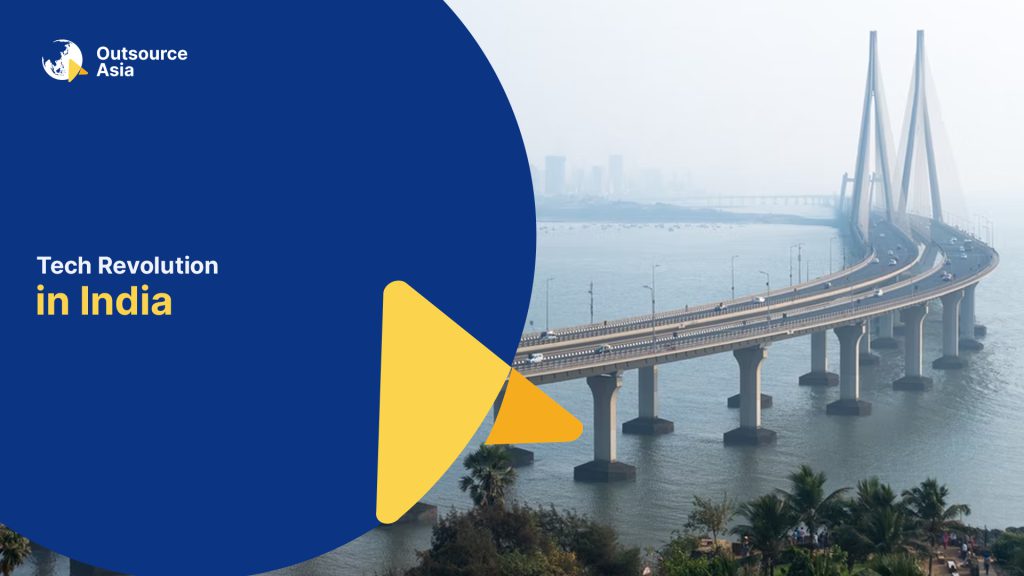
Tech Revolution in India
This article on the tech revolution in India examines aspects of the post-pandemic era, examining how organizations respond towards the impact of automation and technology on job availability. It also examines decisions by policymakers and business leaders on aspects of cybersecurity management and data and privacy protection.
Impact of Automation and Technology on Job Availability
The extensive ongoing automation across industries, particularly in the technology sector, may reduce low-skilled roles by 2022, allowing corporations to save $100 billion in salaries each year. According to a Bank of America report, the impact of robot process automation (RPA) in the job market would result to 3 million unemployed individuals in India’s IT sector alone.
This RPA-driven job reduction is also attributed to many foreign companies’ decision to forego offshoring bring the jobs back to their home markets. To safeguard their digital supply chain and assure future robustness of their national technological infrastructure, developed countries will increasingly use native IT people or domestic software robots like RPA, the report said.
On the other hand, technologies such as Artificial Intelligence (AI), Big Data Analytics, and the Internet of Things (IoT) seem to hold the keys to employing 65% of India’s total population residing in rural areas. As per the report of Broadband India Forum, this could lead to around 3 million job roles in the upcoming decade and another 2 million specific employment opportunities within the primary and secondary agriculture-based sectors.
Prime Minister Narendra Modi said that there are various training programs and initiatives to skill and prepare people for upcoming AI-related jobs, including the creation of an e-Education unit to boost the digital infrastructure, digital content, and capacity as well as virtual labs to provide hands-on experience to learners and to promote a culture of innovation and entrepreneurship.
Upskilling and reskilling will play a crucial role to ensure that India wouldn’t suffer a projected $2 trillion loss by 2028, said an Accenture study. New types of jobs are being created, and roles are being reconfigured as the nature of work is transforming across industries. If the Indian workforce is equipped with new skills sets, they have the opportunity to put their energies into more strategic and creative tasks while intelligent technologies take over routine work.
Cybersecurity Management and Data and Privacy Protection
Since the European Union General Data Protection Regulation (EU GDPR) took effect in 2018, numerous countries across the world have followed suit. India is also working to enact a data protection framework that contains many of the GDPR’s provisions. The Personal Data Protection Bill (PDP), which is currently before parliament, was suggested to replace India’s current data protection legislation, which is presently governed by the Information Technology Act 2000.
After the Snowden leaks in June 2013, which revealed that the US National Security Agency (NSA) was spying on many countries, including India, cybersecurity became more critical in India and created its 2013 Cybersecurity Policy.
However, India’s overall cybersecurity policy has remained inadequate. Power outages across Mumbai in the summer of 2020 were linked to a possible hacking of India’s power grid by China at the onset of the Ladakh standoff. India made headlines in February 2021 after power outages across Mumbai in the summer of 2020 were linked to a possible hacking of India’s power grid by China at the onset of the Ladakh standoff.
According to national cyber security coordinator Lt. Gen. (retd) Rajesh Pant, India is one of the most cyber-attacked nations in the world. This is why the government prioritizes completing a National Cybersecurity Strategy. “This will be pivotal in addressing the challenge of cyber-skilling and ensure that there will be a pool of skilled security professionals, both men and women, to protect the critical infrastructure of the country,” Pant said.
India recently jumped from 47th to 10th place in the Global Cybersecurity Index 2020 (GCI) with an overall score of 97.49, according to the United Nations agency for information and communication technologies (ICT). Moving 37 places above to position itself among the top 10 on the list demonstrates the country’s success and commitment to cybersecurity at a global level.
Learn more about how Outsource Asia can help your organization embrace the future of work.


